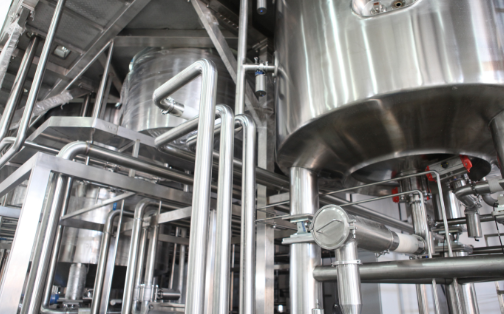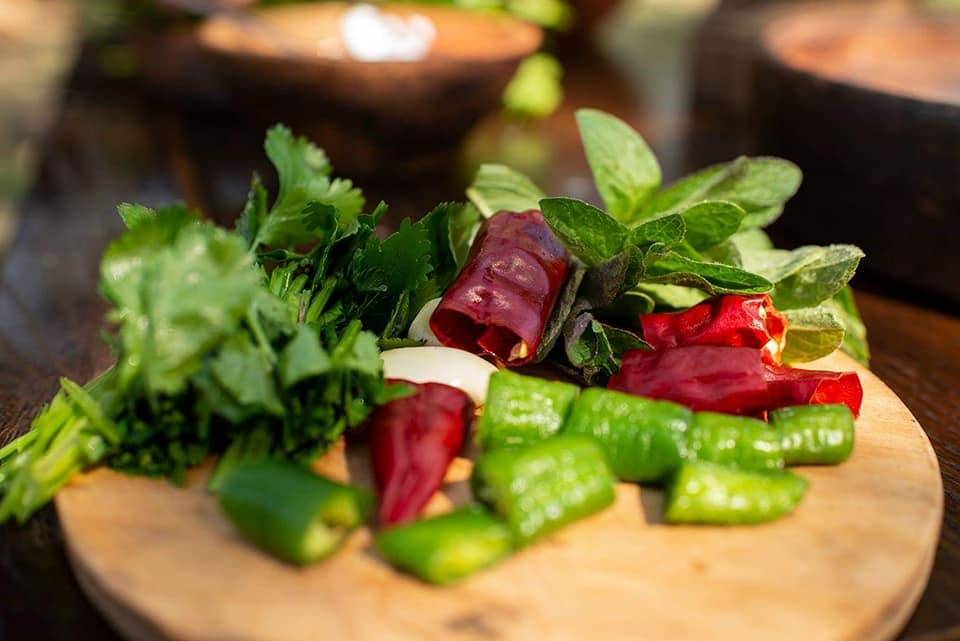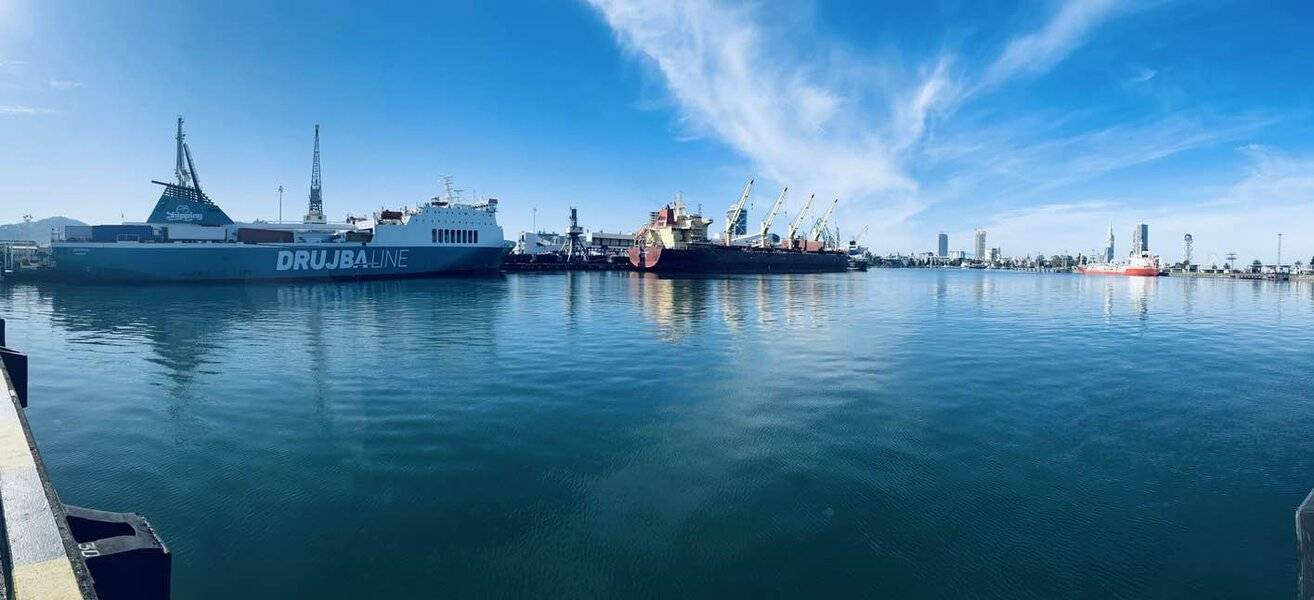
Agriculture
Arable Land Resources
Samegrelo-Zemo Svaneti is characterized by highly highly diverse relief, relatively high altitude, as well as deep gorges (in the northern part of Samegrelo-Zemo Svaneti) and open plains (in the southern part of the region between the Enguri and Tskhenistskali Rivers). Due to the diversity of the region’s natural conditions, there are various types of soil. Arable land in the region equals 268 thousand ha. The majority of households own less than 1.25 ha of the arable land. Meanwhile, the drainage land in Abasha Municipality equals 14.6 thousand ha, of which 14 thousand ha needs rehabilitation. Overall, 1.9 thousand ha of the land needs rehabilitation in Khobi Municipality and 4.5 thousand ha of the land in Senaki Municipality also requires rehabilitation. The rain-fed land in Tsalenjikha Municipality equal 3 thousand ha, while unassimilated land (abandoned, covered with bushes and weeds) represents a problem in the region. The total area of unassimilated land equals 14.8 thousand ha, which is 5.5% of the total agricultural land. Moreover, more than 5,000 ha of tea and tung lands are degraded. Ultimately, there is significant potential to increase agricultural production if various parts of land can be rehabilitated.
State Programs in agriculture
Program Objective: Plant the Future
In the course of the program, farmers have an opportunity, with state co-financing, to plant perennial orchards and berries, and to create nurseries. The program was launched in March 2015 and its main objective concerned the effective use of arable land in Georgia and specifically planting perennial crops. As a result, it was hoped that imported products would be substituted by Georgian products, that exports would increase, that processing enterprises involving raw materials would be simplified, and that socio-economic conditions of the rural population would improve. The target for the co-financing sub-component for berries was personal agricultural lands in separate villages and municipalities with a low level of activity, where arable land is very fragmented and where the uniting of land plots has proved impossible.
From 2015 to 2021, as part of the orchards component of the Plant the Future program, there were 197 applications approved. The area of planted/contracted land in the orchards component equaled 997 ha, while the volume of the Agency’s co-financing amounted to GEL 9,212,302. Within the nurseries component of the Plant the Future program three applications were approved. The planted/contracted area equaled 155 ha, while the volume of the Agency’s co-financing amounted to GEL 220,110. Within the component that entailed setting up wells/boreholes/pumping stations of the Plant the Future program, 12 applications were approved. The relevant area equaled 84 ha, with the volume of the Agency’s co-financing reaching GEL 161,134.
Agro Insurance Program
Program Objective:
The goal of the Agro Insurance Program is to develop the insurance market in the agro-sector, to facilitate agricultural activities, to maintain revenues for individuals engaged in agricultural activities, and to reduce risks. The Program has been running since 2014. Within the framework of the Agro Insurance Program, farmers have the opportunity to insure their crops against hail, flooding, hurricanes, and frost.
In 2014-2020, within the framework of the Agro Insurance Program, there were 8,814 policies issued. Various crops andcultures worth GEL 35,765,334 were insured and a total of 6,646 ha of land was insured. The Agency’s subsidies equaled GEL 1,725,858 while as of 31 December 2020, the indemnified damage amounted to GEL 1,128,546.
The Project of Co-Financing of Agro Processing and Storage Enterprises
Project Objective:
The goal of this project is to co-finance new enterprises processing and storing agricultural products. In the course of the project, the amount of co-financing has increased by 10% for highland settlements.
In 2014-2021, within the framework of the processing enterprises component, 13 projects were approved with a total investment value of GEL 19,150,919 and state co-financing equaled GEL 7,028,844. Within the storage enterprises component, two projects were approved with a total investment value of GEL 1,432,039 and state co-financing equaled GEL 629,775.
Agriculture Modernization, Market Access and Resilience (AMMAR) Program of Co-Financing
Program Objective:
The program aims: to support improving the quality and productivity of primary production; to facilitate the expansion and modernization of operating, processing, and storage agro-enterprises; and to introduce/implement international standards and modern technologies.
The program includes co-financing components for individual farmers, as well as processing enterprises and agricultural partnerships.
In 2016-2020, within the primary production component, 65 agreements were concluded with a total investment value of GEL 4,482,054 and the Agency’s co-financing equaled GEL 1,754,613. Within the processing and storage enterprises component, one agreement was concluded with a total investment value of GEL 487,365 and the Agency’s co-financing equaled GEL 194,946.
The Program Supporting Young Entrepreneurs in Villages – Young Entrepreneur
Program Objective:
The program envisages providing financial and technical support to potential beneficiaries in starting up new businesses. It comprises three stages:
- Technical assistance prior to co-financing (implementing unit: the Ministry);
- Co-financing – financial assistance (implementing unit: the Agency);
- Technical assistance after co-financing (implementing unit: the Ministry).
The co-financing stage will be carried out in all municipalities and self-governing cities and towns of Georgia, except the following: Tbilisi, Rustavi, Kutaisi, Poti, and Batumi.
In 2018-2020, seven agreements were concluded worth GEL 759,169 in total, of which the volume of co-financing equaled GEL 303,668.
The State Program of Rehabilitation of Tea Plantations – Georgian Tea
Program Objective:
The project aims to rehabilitate both privately-owned and state-owned tea plantations, to efficiently fulfill the potential of the tea industry, to create modern tea-processing enterprises, and to facilitate an increase in local tea production (including bio tea). As a result of the program, the level of self-sufficiency and export potential was expected to increase in the country.
In 2016-2021, within the framework of the mentioned program, 16 applications were approved covering a total area of 493 ha. Meanwhile, the total value equaled GEL 1,233,396, of which GEL 821,602 came from the Agency’s co-financing.
Agricultural Mechanization Co-Financing Program
Program Objective:
The program aims to increase the availability of agricultural machinery and equipment including harvesters, tractors, etc.
As of 2019-2021, two agreements were concluded with a total value of GEL 54,150, of which the volume of co-financing equaled GEL 27,075
The State Program of Agro-Production Promotion
Program Objective:
The program aims to promote the primary production of annual and perennial agricultural crops.
The following tasks are being undertaken in the course of the program: a) increasing the availability of agricultural machinery and equipment; b) increasing the volume and quality of production of agricultural products in closed coat; and c) increasing the volume and quality of production of agricultural products in open coat.
The program is being implemented in all municipalities of Georgia, except self-governed cities and towns.
In 2020, a total of 31 agreements were concluded with a total value of GEL 1,661,071, of which the volume of co-financing equaled GEL 864,765.
The State Program of Dairy Modernization and Market Access (DIMMA)
Program Objective:
The program aims to develop rural economies through promoting the establishment of a competitive, diversified, and sustainable dairy sector.
The program also envisages enhancing the sustainability and flexibility of small dairy producers.
In 2020, 73 agreements were concluded with a total value of GEL 3,037,546.
Rural Development Program
Program Objective:
The program envisages the promotion of rural economic and environmental activities through co-financing.
In particular, it seeks to promote the development of rural non-agricultural entrepreneurial activities, which, in turn, will facilitate the stimulation of economic development in municipalities, will improve the socio-economic situation, will engender economic diversification and the creation of new jobs, will help to overcome challenges related to environmental protection and climate change, and will ensure the effective use of natural resources.
In 2020-2021, one agreement was concluded with a total value of GEL 20,000.
New and Expanded Enterprises
In the year 2020, there were 30 new enterprises opened and 55 were expanded.
Of the 30 new enterprises, 14 of them were established under the co-financing through soft agro-credit loans, one was established courtesy of Enterprise Georgia, while the other 15 were processing and storage enterprises.
Food Safety
The consumer market is being actively controlled. Educational institutions, daycare centers, catering blocks, slaughter-houses, milk and dairy product enterprises, public catering and meat preperation facilities are being permanently controlled.



